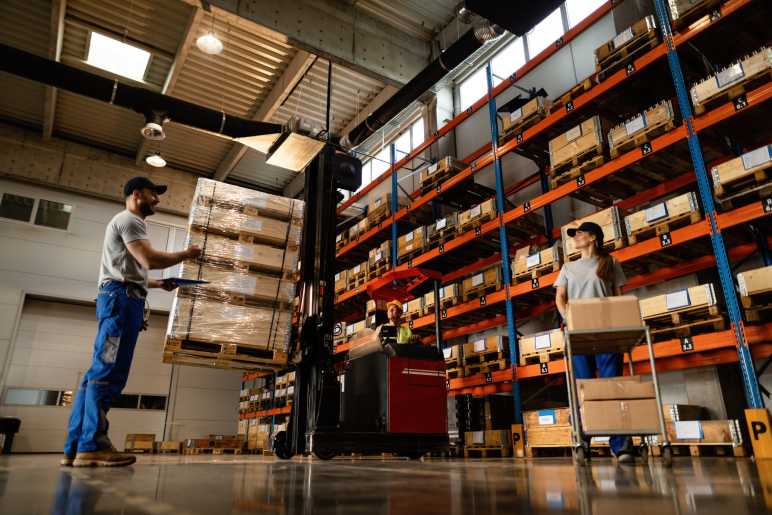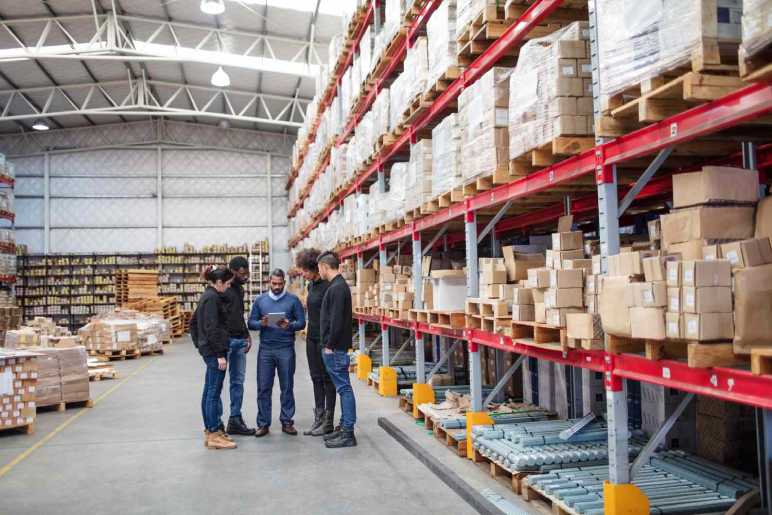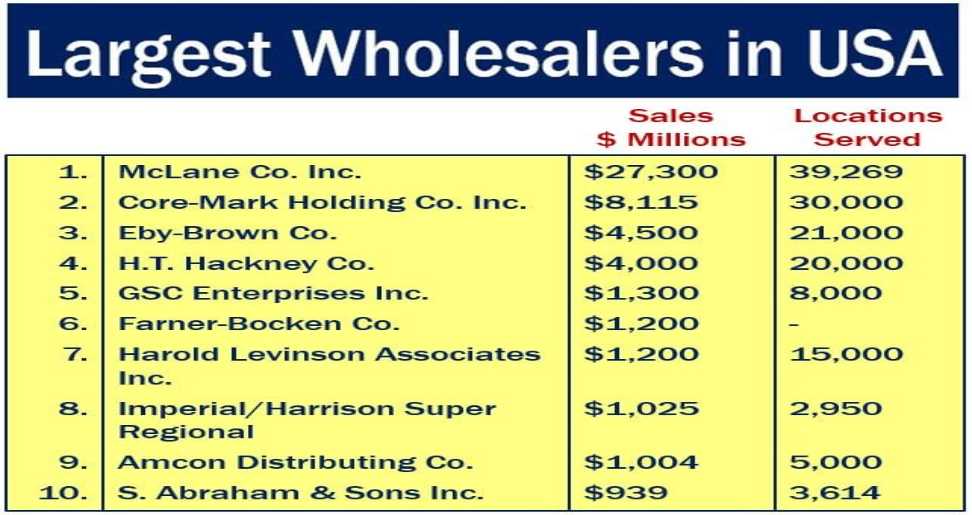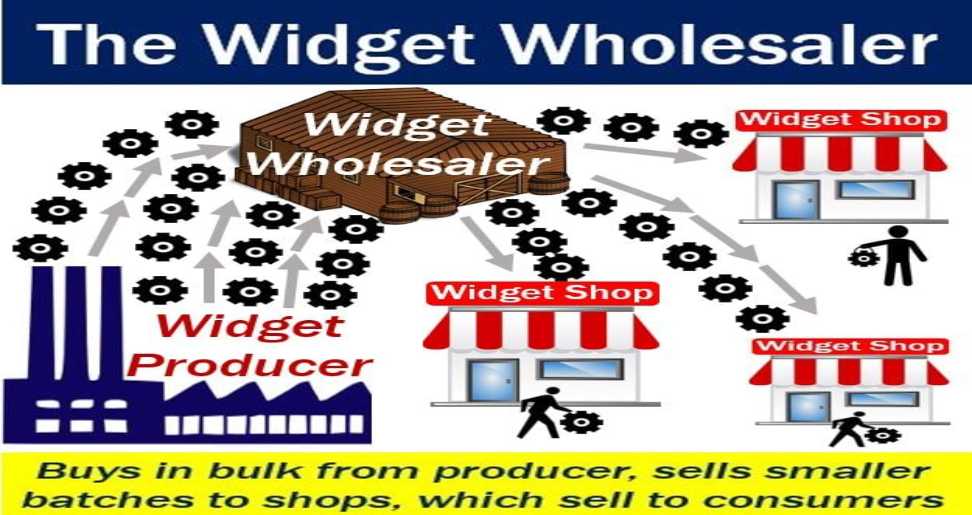In the business world retailers and wholesalers are two different things. If you want to know the response to the question that asks who is a wholesaler then you have come to the right place. In business, wholesalers act as key middlemen between manufacturers and retailers.
They buy products in bulk from makers and sell them in smaller quantities to companies helping to connect production with retail. This article will look into what wholesalers do examining their roles, types, benefits, and the issues they face in today’s market.
What Wholesalers Do

If you want to know who is a wholesaler then you might also want to know what they do. Wholesalers have several main jobs that help move goods from makers to buyers. These jobs include:
Bulk Purchasing:
Wholesalers buy goods in big batches from manufacturers. This bulk buying gives them a chance to save money, as they pay less for each item.
Storage:
Wholesalers keep these big batches of goods in warehouses until retailers need them. This storing helps keep a steady flow of products in the market, so retailers can meet what customers want without keeping too much stock themselves.
Distribution:
By splitting up big batches into smaller easier-to-handle amounts, wholesalers make it simple for retailers to buy just what they need. This distribution plays a key role in running supply chains.
Financing:
You need to know about financing if you learn about who is a wholesaler. Wholesalers often give credit to retailers letting them buy products without paying right away. This financial support helps smaller retailers handle their cash flow better.
Risk Bearing:
When wholesalers own the goods, they take on the risk of unsold stock, price changes, and damage. This risk-taking provides a safety net for both makers and sellers.
Market Information:
Wholesalers collect and share info about market trends, what customers like, and what competitors are doing. This information helps manufacturers and retailers make smart business choices.
Promotion:
Wholesalers often take steps to boost sales of the products they distribute. These steps can include ads special offers, and product demos for retailers.
Types Of Wholesalers

If you want to know the answer to the question that asks who is a wholesaler then you need to know about the types. We can group wholesalers into different categories depending on how they work and what kinds of products they deal with:
Merchant Wholesalers:
These wholesalers own the goods they sell. They buy products from manufacturers and sell them to retailers or other businesses. Merchant wholesalers fall into two groups: full-service wholesalers, who offer many services, and limited-service wholesalers, who provide fewer services and focus on specific parts of the distribution process.
Brokers And Agents:
Unlike merchant wholesalers, brokers and agents don’t own the goods they sell. Instead, they work as middlemen helping buyers and sellers make deals. Brokers and agents earn money through commissions on the sales they help close.
Manufacturers’ Sales Branches And Offices:
Some manufacturers set up their own sales branches or offices to distribute their products. These branches work like wholesalers but the manufacturers own and run them.
Specialty Wholesalers:
These wholesalers deal with specific types of products or industries. For example, food wholesalers distribute food products, while pharmaceutical wholesalers distribute medications and medical supplies.
Advantages Of Using Wholesalers

Since you wanted to know about who is a wholesaler then you need to know about the advantages of wholesalers. Using wholesalers in the supply chain has benefits for manufacturers, retailers, and consumers:
Cost Savings:
Buying goods in large quantities lets wholesalers get better deals from makers. Retailers often benefit from these savings, which leads to cheaper prices for shoppers.
Efficient Distribution:
Wholesalers make distribution smoother by splitting big loads into smaller easier-to-handle batches. This approach helps to cut down on overall distribution costs and keeps a steady flow of products in the market.
Risk Mitigation:
Wholesalers take on the risks of keeping stock dealing with price changes, and handling unsold goods. This risk-taking allows makers and sellers to focus on their main business tasks without having to worry about these uncertainties.
Market Access:
Wholesalers help manufacturers reach a bigger market by linking them with many retailers. This wider reach lets manufacturers boost their sales and expand their businesses.
Credit Provision:
Wholesalers often give credit to retailers, so they can buy goods without paying right away. This credit helps smaller retailers handle their cash flow and put money into other parts of their business.
Challenges Faced By Wholesalers
Even though they play a key role, wholesalers run into several problems in today’s market:
Changing Consumer Preferences: Consumer tastes keep shifting, so wholesalers must keep up. They need to stay in the loop about what’s hot in the market and tweak what they offer to match. These are the challenges that you need to know since you asked about who is a wholesaler.
Competition:
Online shopping and brands selling straight to customers have ramped up the competition for wholesalers. Makers and shops now have more ways to reach buyers, which can shake up the usual wholesaler’s job.
Technological Advancements:
New tech has shaken up the supply chain pushing wholesalers to spend money on fresh systems and methods to stay in the game. This means getting on board with digital stock tracking online selling platforms, and number-crunching tools.
Supply Chain Disruptions:
Natural disasters political unrest, and global health crises can break supply chains. This affects product availability and makes it hard for wholesalers to meet customer needs.
Regulatory Compliance:
Wholesalers must deal with many rules and legal requirements. These include laws about importing and exporting, safety standards, and environmental regulations. To follow these rules takes a lot of time and money.
Conclusion
We have given you details about the response to the question that asks who is a wholesaler. Wholesalers are key players in the supply chain bridging the gap between manufacturers and retailers. They have an impact on the smooth flow of goods from production to consumption by buying in bulk storing products, distributing items, providing financing, and taking on risks.
Wholesalers offer many benefits such as cutting costs, streamlining distribution, and opening up market opportunities. However, they also face obstacles like shifting customer tastes tougher competition new technologies, supply chain issues, and following regulations.
Even with these hurdles, wholesalers remain essential to the business world helping to make the supply chain more productive and effective overall.
Have A Look :-
- Job Opportunities in Electric Utilities
- Urgent Cash Loan Today: Quick Guide
- The Versatility and Utility of Flatbed Trailers: A Comprehensive Overview
Featured image Source :- https://tinyurl.com/ycx7j7zj

